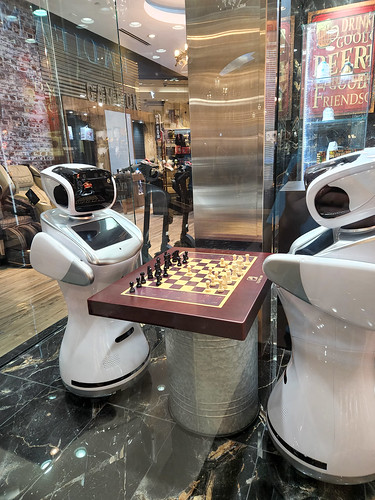The most remarkable aspect of this article is that it was written by an AI application called GPT-3 with some minor human edits. It analyses the arguments for and against AI in education and gives examples of how AI generated texts could be used in a positive manner: for example, letting AI generate a text on an introductory paragraph and asking students to compare the AI text with the original. It is remarkably insightful on its own limitations and how academics need to rethink traditional practices to counter the threat of AI.
Because artificial intelligence is trained on a huge corpus of text and has access to the entire internet, it excels at writing and responding to textual prompts. This includes topics that would otherwise be perceived as meeting criteria for authentic assessment. This presents a challenge for higher education academics because we are so accustomed to using exams and other assessments that focus on student knowledge. If artificial intelligence can write essays and answer exam questions, higher education academics need to radically rethink learning, teaching, and assessment in the post-machine era.
But the question remains of whether the essay is a valid form of academic assessment and what new methods we should turn to. The gut reaction to the problem could be doubling down on traditional proctored exam hall tests with no access to digital devices or textbooks but I hope we can think further than this. Learning to write a well argued essay or article is a fundamental skill in all forms of science and it is hard to imagine higher education without this crucial element. But if we can instantly generate an acceptable imitation the exercise becomes somewhat futile. Problem and project-based learning as well as a greater focus on interviews and live seminar discussions would seem to be more relevant both in terms of assessment and as training for professional practice. Writing and critical thinking skills must be learned and practiced but somehow we need new ways to use them. There are already examples of AI-generated texts getting accepted for journal publication and as conference submissions. The foundations of academia are under threat and we need to develop new strategies and methods.
Jon Dron writes about this in a post, So, this is a thing… and sees the answer in a refocus on people and genuine interaction.
This is a wake-up call. Soon, if not already, most of the training data for the AIs will be generated by AIs. Unchecked, the result is going to be a set of ever-worse copies of copies, that become what the next generation consumes and learns from, in a vicious spiral that leaves us at best stagnant, at worst something akin to the Eloi in H.G. Wells’s Time Machine. If we don’t want this to happen then it is time for educators to reclaim, to celebrate, and (perhaps a little) to reinvent our humanity. We need, more and more, to think of education as a process of learning to be, not of learning to do, except insofar as the doing contributes to our being. It’s about people, learning to be people, in the presence of and through interaction with other people. It’s about creativity, compassion, and meaning, not the achievement of outcomes a machine could replicate with ease. I think it should always have been this way.
Another article, Will artificial intelligence be able to write my college essay? by Eamon Costello and Mark Brown, Dublin City University, raises the need to rethink how we assess learning rather than finding ways to defend the traditional essay.
Do we try to tame AI to protect old ways of learning or should we embrace its potential and reimagine our assessment practices to reflect the modern reality of living in the 21st century? One creative educator had his students purposefully use and evaluate AI essay writers as part of their assignment.
Finally, this perspective is echoed by the AI-generated article itself, showing a surprising level of insight on its own limitations.
In particular, there is a need to focus on developing higher-order thinking skills such as creativity, critical thinking, and problem-solving, which are not easily replicated by machines. Additionally, it will be important to create opportunities for students to interact with each other and with their instructors on a regular basis, in order to promote the social and emotional skills that are essential for success in the workplace.

No comments:
Post a Comment
Note: Only a member of this blog may post a comment.